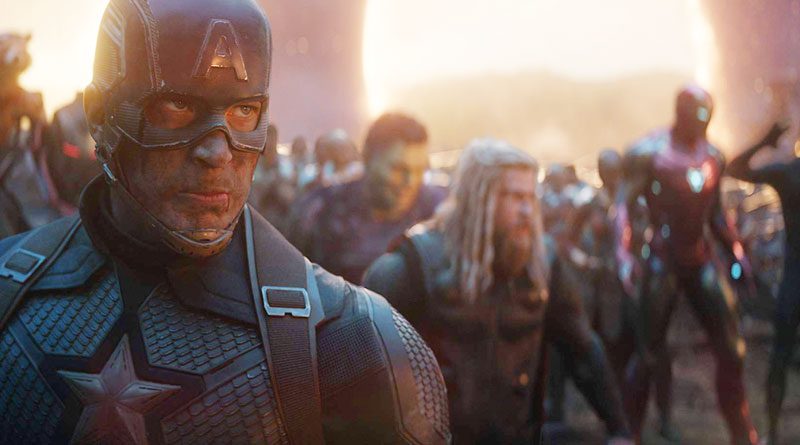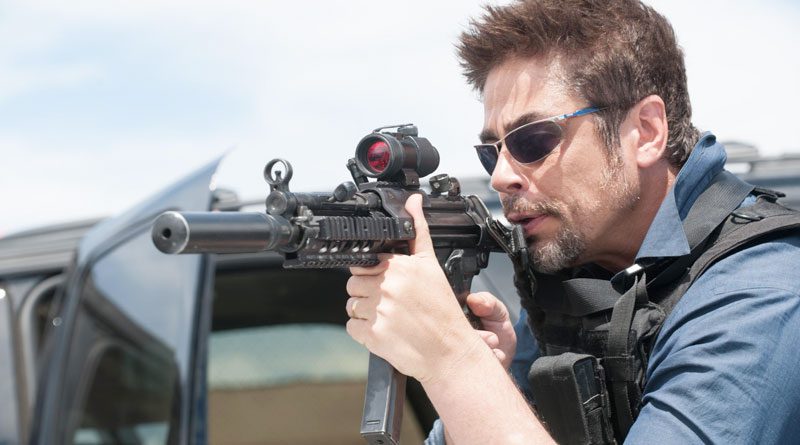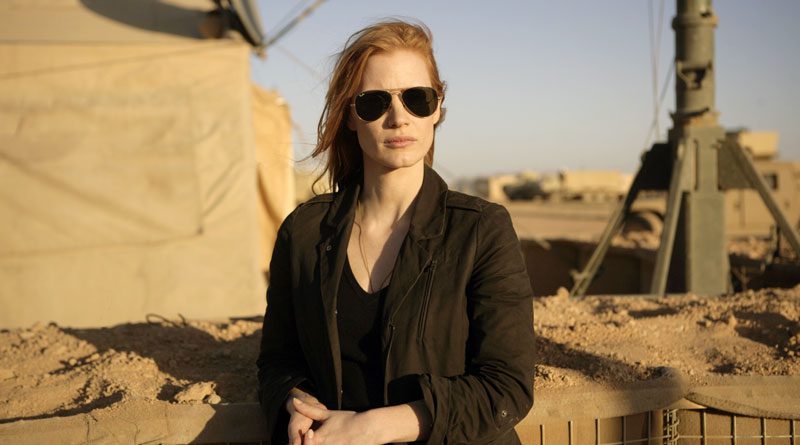The 20 Best Movies of the 2010s
Following the 20 Worst Movies of the 2010s, it’s time to look back at some of the best movies that have been released over the last 10 years. From superhero movies to other genres like sci-fi as well as action and drama, here is my handpicked list of 20 Best Movies of the 2010s based in alphabetical order.
1. Avengers: Endgame (2019)

Culminating all previous 21 MCU (Marvel Cinematic Universe) films into one epic conclusion is definitely not an easy feat. But the Russo brothers — Anthony and Joe — did just that, as they successfully blend a mix of unexpectedly sombre drama dealing with grief and loss with Marvel’s house-style entertainment. The movie’s three-hour length could have been a test of patience but it rarely flags, thanks to its overall engaging storyline and solid character development from most of the recurring cast members — notably Robert Downey Jr. and Chris Evans who both steal the show as Tony Stark/Iron Man and Steve Rogers/Captain America respectively. Although Avengers: Endgame isn’t exactly as action-packed as 2018’s Avengers: Infinity War, the Russo brothers made the right choice by saving the best for the last with an elaborate all-hell-breaks-loose epic finale.
2. Birdman (2014)

A refreshing change of pace from the usual harrowing drama that defined Alejandro González Iñárritu’s filmography (2000’s Amores Perros, 2003’s 21 Grams and 2006’s Babel), Birdman is a different beast altogether — a sharply-written showbiz satire that pokes fun on everything from the ongoing trend of the superhero genre to social media and celebrity culture related to fame and creative ego. At the heart of this ambitious satire is Michael Keaton’s career-best performance as the has-been Hollywood superstar Riggan Thomson. The movie is also worth mentioning for Iñárritu’s unique creative approach in stitching every shot into a long, seamlessly unbroken take with the help of Emmanuel Lubezki’s fluid camerawork alongside Douglas Crise and Stephen Mirrione’s deft editing.
3. Black Swan (2010)

Darren Aronofsky’s nightmarish view of ballet dancing is a thought-provoking psychological horror at its finest shot in a semi-documentary style. His direction also influenced heavily from the early works of David Cronenberg’s body horror (split toenails, shoulder rashes) and Roman Polanski’s psychological decay undertones reminiscent of 1965’s Repulsion and 1968’s Rosemary’s Baby. Natalie Portman earned a well-deserved Oscar for Best Actress for her committed portrayal as a young ballerina on the verge of emotional and psychological breakdown.
4. Blade Runner 2049 (2017)

In what could have been a wholly unnecessary sequel to Ridley Scott’s 1982 seminal sci-fi classic of Blade Runner, Denis Villeneuve manages to prove otherwise with a solid direction that successfully expanded the mythos while delving deep into the meaning of being human. Original Blade Runner protagonist Harrison Ford may have been reduced into a supporting role but his appearance also happens to one of the sequel’s finest moments. Ryan Gosling, who took over as the lead, delivers a spot-on performance of a brooding and no-nonsense character as K. The visuals are undoubtedly the biggest highlight here, thanks to its elaborate production design and seamless special effects all around. Roger Deakins’ cinematography is another winning factor in this sequel. Every image from the majestic view of the 2049 Los Angeles to the derelict burnt-orange Nevada desert is a sight to behold. The kind that is best experienced on the biggest screen possible.
5. Captain America: The Winter Soldier (2014)

Outside of Avengers: Endgame, Captain America: The Winter Soldier easily ranks as one of the best MCU movies ever made. This much-improved sequel over 2011’s Captain America: The First Avenger sees then-franchise newcomers Anthony and Joe Russo of TV’s Community and 2006’s You, Me and Dupree seem like a very odd choice for such a job. And yet, they turn out to be a great find and even executed their first large-scale superhero-centric action movie like seasoned pros. Suffice to say, the action is all thrillingly staged with enough verve while the Russo brothers smartly infused the superhero genre with political intrigue.
6. Django Unchained (2012)

Over the last 10 years since 2010, Quentin Tarantino has only made 3 films — two of which are The Hateful Eight (2015) and Once Upon a Time in Hollywood (2019). But I prefer Django Unchained the most, Tarantino’s entertaining homage to spaghetti western genre made famous by Sergio Leone and Sergio Corbucci during the 60s. He brings out the best in his solid ensemble cast, notably all four actors including Jamie Foxx, Christoph Waltz, Leonardo DiCaprio and Samuel L. Jackson. The final hour in the Candyland sequence is particularly memorable, complete with a deliberate but clever build-up of memorable verbal exchanges that lead to a violent gunfight.
7. Gone Girl (2014)

From Seven (1995) to The Girl with the Dragon Tattoo (2011), David Fincher has perfected the cinematic art of modern psychological thrillers like no others. Then along came Gone Girl, which sees the director skillfully merged two different genres into one movie: a twisted mystery-thriller and a pitch-black satire on today’s picture-perfect marriage and media obsession. The movie is also notable for Rosamund Pike’s tour de force performance as the titular girl with a hidden agenda.
8. Inception (2010)

Writer-director Christopher Nolan took the high-concept of dream vs. reality to a whole new level in Inception, a big-budget studio blockbuster that combines popcorn entertainment and brainy sci-fi thriller. The story itself — a team of professional thieves led by Leonardo DiCaprio’s Cobb steal corporate secrets using a dream technology to infiltrate the mind of their targets — is intriguing. Nolan’s labyrinthine storytelling style is put into good use as he navigates his plot reminiscent of a Pandora’s box waiting to be discovered. The movie is also blessed with a top-notch ensemble all around, particularly Leonardo DiCaprio as well as Marion Cotillard and Joseph Gordon-Levitt.
9. La La Land (2016)

Damien Chazelle’s love letter to old-fashioned Hollywood musical of the 1950s and 60s features plenty of memorable song-and-dance numbers (the elaborate six-minute opening sequence of “Another Day of Sun” shot in a seemingly single-take particularly comes to mind). But La La Land also stretches beyond its musical genre trappings with a bittersweet love story between Ryan Gosling’s jazz pianist Sebastian and Emma Stone’s aspiring actress Mia. Not only Gosling and Stone share terrific chemistry but also respectively deliver among their finest performances to date.
10. Logan (2017)

Blending superhero genre with classic revisionist Western movies seen in 1953’s Shane and 1992’s Unforgiven, co-writer and director James Mangold gives Hugh Jackman’s iconic role of Wolverine a violent and epic sendoff. The movie is also backed by solid supports from the rest of the cast, notably Patrick Stewart’s grizzled turn as the elderly Professor Charles Xavier while 11-year-old Spanish newcomer Dafne Keen stands out as the mostly-mute Laura.
11. Mad Max: Fury Road (2015)

A pure visceral cinema at its finest. George Miller’s much-anticipated return to the Mad Max franchise was certainly worth the wait and even his original star Mel Gibson no longer played the title role, Tom Hardy proved to be a worthy replacement. But it was Charlize Theron who steals most of the show as Imperator Furiosa and even gives the otherwise testosterone-driven Mad Max movie a refreshingly feminist spin. Miller, on the other hand, does an excellent job staging every action sequence as practical as possible. And that means real stunts and actual location with minimum CG effects.
12. Nightcrawler (2014)

Veteran screenwriter Dan Gilroy (1992’s Freejack and 2012’s The Bourne Legacy) made his promising feature-length directorial debut in Nightcrawler, a solid thriller that explored the dark side of voyeurism, social degradation and cutthroat world of network television. Then, there’s Jack Gyllenhaal, who delivers one of his best performances to date as Lou Bloom. His portrayal of an obsessive loner and a deranged sociopath evokes the likes of Carl Boehm’s Mark Lewis in Peeping Tom (1960) as well as Robert De Niro’s Travis Bickle (1976’s Taxi Driver) and Rupert Pupkin (1983’s The King of Comedy).
13. Parasite (2019)

Bong Joon-Ho’s long-awaited comeback to South Korean cinema famously made history as the first Korean movie to win the coveted Palme d’Or at the Cannes Film Festival. Deftly combined pitch-black comedy and psychological thriller, Joon-Ho smartly integrates both genres with topical issues of class divides and social status between the poor (Ki-Taek family) and the rich (Park family). But most interesting of all, Joon-Ho’s sneaky direction ensures you are in for some unexpected surprises as the movie gradually unfolds in a subversive manner.
14. Prisoners (2013)

Psychological thrillers about missing person are nothing new but Denis Villeneuve — making his first Hollywood debut — manages to take the oft-told genre and turn it into a remarkable piece of cinema. Despite the movie runs a deliberate pace at 153 minutes, Aaron Guzikowski’s script is captivating enough to sustain one’s interest reminiscent of reading a page-turner. It also helps that Prisoners boasts a well-acted ensemble, notably Hugh Jackman and Jake Gyllenhaal in one of their career-best performances to date.
15. Sicario (2015)

Denis Villeneuve gives Sicario a gripping and visceral cinematic treatment on the otherwise oft-told “war on drugs” crime thriller, complete with an expertly-staged Mexico/US border scene. At the heart of the movie boasts a trio of fine performances anchored by Emily Blunt, Josh Brolin and Benicio Del Toro, with the latter particularly impresses me the most with his steely and enigmatic role of a mysterious operative known only as Alejandro.
16. The Irishman (2019)

Investing nearly US$160 million for extensive de-ageing effects to make septuagenarian actors Robert De Niro, Al Pacino and Joe Pesci look younger in key moments was undoubtedly a huge gamble for any studio. But Netflix took the risk and it paid off handsomely as Martin Scorsese delivers one of his best directorial efforts to date. He could have just rehashed his own gangster movies in the vein of Goodfellas (1990) and Casino (1995) but instead, he went another way — opting a more poetic and meditative approach equivalent of Sergio Leone’s Once Upon a Time in America (1984). The massive length of 209 minutes may sound like a test of patience but Scorsese’s regular editor Thelma Schoonmaker does an overall great work with her virtuoso editing. Scorsese also successfully brings out the best in his cast, with all three main actors giving their finest late-career performances.
17. The Raid: Redemption (2012) and The Raid: Berandal (2014)

Unlike Hong Kong and Thailand, Indonesian cinema isn’t primarily known for its martial-arts action genre. But the arrival of Welsh-born director Gareth Evans changes all that in The Raid: Redemption, a visceral action movie notable for its no-holds-barred graphic violence and acrobatic camerawork. The story, which revolves a SWAT team (among them are Iko Uwais’ Rama and Joe Taslim’s Sergeant Jaka) attempts to infiltrate a 15-storey apartment building filled with criminals guarded by a notorious kingpin Tama (Ray Sahetapy), is pretty straightforward. But the action remains the biggest highlight here, with then-rising martial arts star Iko Uwais impresses the most with his nimble pencak silat skill.

And just when you thought Gareth Evans has exhausted everything in The Raid: Redemption, he manages to do the impossible by elevating the 2014 sequel even better than expected. Here, he made an ambitious choice expanding the first movie’s claustrophobic small-scale setting of a lean action thriller into a surprisingly epic crime film. Here, he takes his time to develop his own screenplay, favouring a deliberately-paced but engaging character-driven drama over balls-to-the-wall action-movie approach. And after the methodical buildup, Evans ensures his audiences it’s all worth the wait. This is particularly evident during the final hour of the movie that culminated with a thrilling action-packed payoff, notably a three-way fight scene between Iko Uwais’ Rama, Julie Estelle’s Hammer Girl and Tri Yulisman’s Baseball Bat Man as well as Rama’s one-on-one confrontation against Cecep Arif Rahman’s The Assassin.
18. Train to Busan (2016)

Yeon Sang-Ho, an independent animation director making his live-action debut, takes the oft-seen zombie subgenre and incorporates it with timely sociopolitical allegories of class divides, corporate greed and selfishness. The acting is just as great, with Gong Yoo’s workaholic father and Ma Dong-Seok’s good-natured tough guy Sang-hwa deserve special mentions in this movie. Despite the fact that Train to Busan actually marks South Korea’s first homegrown zombie movie, Sang-Ho proves to be an ace who knows the genre like the back of his hand. This is especially true with the convincing zombie makeup effects as well as some of the riveting set pieces that take place in and out of the train.
19. Whiplash (2014)

More than just a drama about jazz drumming, writer-director Damien Chazelle turns the musical genre inside out by incorporating it with the psychological intensity of a military film. Think of it like a Full Metal Jacket version in the cutthroat world of jazz drumming, with the no-nonsense and aggressive instructor Terence Fletcher (a remarkable J.K. Simmons) echoes the similarity of R. Lee Ermey’s Senior Drill Instructor and Gunnery Sergeant Hartman. The movie is also bolstered by Chazelle’s overall crisp direction while Tom Cross’ airtight editing helps elevate its pacey 107-minute running time.
20. Zero Dark Thirty (2012)

Kathryn Bigelow, who previously collaborated with screenwriter Mark Boal in their Oscar-winning The Hurt Locker, reunited for the second time in another military-themed drama. The result is Zero Dark Thirty, a gripping procedural detailing on the decade-long manhunt for al-Qaeda leader Osama bin Laden. The movie’s deliberate 157-minute length may have been a turn-off for impatient viewers. But it does benefit from Bigelow’s methodical and absorbing direction all around, coupled with Jessica Chastain’s scene-stealing performance as the relentless CIA analyst Maya.




